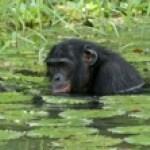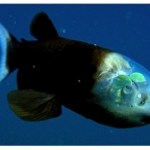
Below, John Wilbanks responds to the question:
The boundaries of science are continually expanding as scientists become increasingly integral to finding solutions for larger social issues, such as poverty, conflict, financial crises, etc. On what specific issue/problem do you feel we need to bring the scientific lens to bear?
It strikes me that science serves almost everything we do and all the social problems we face, but it's usually embedded down in the technology that we use, and we don't notice it. But perhaps the most pressing issue would be how we actually use data to make decisions…
Below, Margaret Turnbull responds to the question:
The boundaries of science are continually expanding as scientists become increasingly integral to finding solutions for larger social issues, such as poverty, conflict, financial crises, etc. On what specific issue/problem do you feel we need to bring the scientific lens to bear?
I think that the most important issue upon which technological innovation should be brought to bear is in energy efficient devices and the decentralization of energy production. Whether this would include something like photovoltaic paints or clothing that captures…
Below, Fernando Esponda responds to the question:
The boundaries of science are continually expanding as scientists become increasingly integral to finding solutions for larger social issues, such as poverty, conflict, financial crises, etc. On what specific issue/problem do you feel we need to bring the scientific lens to bear?
I suggest turning to the fundamentals. It is often said that the basic unit of society is the family, that it is quickly being disintegrated, and that many social problems are connected to this fact. I think it is time to refocus the scientific lens on this topic.…
For many Americans, it is difficult to imagine what going to the doctor would be like under a government-sponsored health care system. But members of the military and their dependents have firsthand experience with such a system under the US Department of Defense TRICARE program. On The Questionable Authority, Mike Dunford describes a recent trip to a military medical center, noting the efficiency and lack of paperwork required. On The Scientific Activist, Nick Anthis compares Mike's experience with his own in the UK. Both Mike and Nick are quick to point out that socialized medicine is not…
Were our human ancestors ocean-dwelling? In a TED talk on Greg Laden's Blog, writer Elaine Morgan makes the case that human traits like subcutaneous fat, nearly hairless skin, and bipedalism—traits which distinguish us from chimpanzees and other close relatives—evolved during an aquatic stage in human history. ScienceBloggers, however, spare little belief for this Aquatic Ape hypothesis. On Pharyngula, PZ Myers says that there is "no evidence anywhere for such a stage." And Greg Laden points out that while no current hypothesis for human evolution is flawless, this one in particular doesn't…
Below, Saleem Ali responds to the question:
The boundaries of science are continually expanding as scientists become increasingly integral to finding solutions for larger social issues, such as poverty, conflict, financial crises, etc. On what specific issue/problem do you feel we need to bring the scientific lens to bear?
The most significant challenge for scientists in coming years will be to provide energy, particularly access to electric power, in developing countries that need it for improving economic prospects as well as for providing basic health and social services. Consider the…
A recent post by Megan McArdle on her Atlantic blog about the heritability of obesity prompted a discussion on ScienceBlogs about the often confused meaning of heritability. As Razib explains on Gene Expression, "Heritability is the proportion of trait variance within the population explainable by variance of genes." The more an environment is able to effect differences between individual expressions of a trait in a single population, the lower the heritability of that trait. In the case of the US obesity epidemic, generational differences in obesity levels do not mean that obesity is not…
Below, Gladys Kalema-Zikusoka responds to the question:
The boundaries of science are continually expanding as scientists become increasingly integral to finding solutions for larger social issues, such as poverty, conflict, financial crises, etc. On what specific issue/problem do you feel we need to bring the scientific lens to bear?
I think that we need to bring the scientific lens to bear on the larger social issue of the role that public health and sustainable environments play in reducing poverty, and in some situations, conflict in war torn areas. In developing countries and…
A rainforest in...Iran? A volcanic eruption...on Venus? This week, ScienceBloggers are bringing our attention to places where nature is defying our expectations. No matter how well we think we know the patterns and forces of the universe, we are constantly surprised: On Gene Expression, Razib takes a look at Iran's lush Caspian and Hyrcanian forests; Erik Klemetti discusses the possibility of a recent explosive eruption on Venus; Ed Yong describes the discovery of a bacterial genome that hides entirely within the DNA of a fruit fly; and in a TED Talk on Greg Laden's Blog, Freeman Dyson makes…
Below, Lambros Malafouris responds to the question:
The boundaries of science are continually expanding as scientists become increasingly integral to finding solutions for larger social issues, such as poverty, conflict, financial crises, etc. On what specific issue/problem do you feel we need to bring the scientific lens to bear?
I would say that more important than choosing one issue/problem over another is probably to emphasize and reinforce the important role that science in general can play, and indeed it has been playing, when offered the opportunity and given the necessary resources…
Here at ScienceBlogs, we're generally fans of the Discovery Channel. MythBusters is great. Man vs. Wild is thrilling. Planet Earth is, of course, one of the most sublime ways to spend an hour—or if you're lucky enough to get your hands on the boxed DVD collection, eleven hours. Straight.
But we just can't get behind Shark Week. Here's the thing: Shark Week has been airing annually since 1987. Every summer for over twenty years, people have gathered to their television sets to learn about how to defeat a Great White if attacked (punch it in the nose), and how long sharks have been around for…
In this week's episode of Science Saturday, John Horgan and George Johnson address the controversy over last week's episode, which featured creationist Paul Nelson and science historian Ron Numbers. Also in this week's episode, John and George take a stab at explaining rising health-case costs, John critiques Chris Mooney's contention that we need more scientists in the public eye, and George previews his upcoming lightning-chasing adventures.
The Internet may have largely replaced many traditional means of storing and sharing information, but as ScienceBloggers are pointing out, it has far to go before its potential is fully realized, particularly in research. On Built on Facts, Matt Springer discusses what it would take to digitize the entire Library of Congress collection—scanning the pages of all 32 million titles and finding enough server space to store the data produced. On Common Knowledge, John Wilbanks compares the functionality of published scientific journals to that of web-based publishing, arguing that the web not…
As any working scientist knows, writing grant proposals is a necessary skill to learn if your lab relies on government or other outside funding to operate. And ScienceBloggers know the process well: From how to allocate investigator effort across multiple grants, to who ought to be allowed access to grant proposals, to how many sleepless nights are involved in a single application, bloggers are delving into the nitty-gritty details of grant preparation. Isis the Scientist offers what is perhaps most needed for an overworked researcher--the perfect musical accompaniment to keep motivation…
Below, Skylar Tibbits responds to the question:
The boundaries of science are continually expanding as scientists become increasingly integral to finding solutions for larger social issues, such as poverty, conflict, financial crises, etc. On what specific issue/problem do you feel we need to bring the scientific lens to bear?
The scientific lens should be expanded to include investment, not in terms of economics, rather investment in design, pure experimentation and higher order computation as an opportunity for social/political problem solving.
As the instability of our financial…
Below, Josh Ruxin responds to the question:
The boundaries of science are continually expanding as scientists become increasingly integral to finding solutions for larger social issues, such as poverty, conflict, financial crises, etc. On what specific issue/problem do you feel we need to bring the scientific lens to bear?
There's no question that scientific progress can have a major social impact. However, the history of science suggests that the adoption of major breakthroughs, particularly to benefit the poor, can actually be an overwrought and lengthy process. Further, science tends to…
Since 2006, the Seed Revolutionary Minds series has identified over 50 individuals who are breaking the barriers between science and art, architecture, design, and communication—the interpreters, the game changers, the re-envisionaries.
Earlier this year, we posed three questions to these Revolutionary Minds, asking them to reflect on the role of science in relation to pressing global issues and how a cross-disciplinary approach to problem solving might advise them. We will post their responses here, over the course of the next three months, and invite additional responses from…
In 2007, the Arctic saw its lowest levels of sea ice coverage than any year in recorded history, and trends for 2009 indicate that we may be on our way to a new record low. The low summer coverage follows a winter that saw an unprecedented disappearance of thick, multiyear ice, which is more resistant to melting and forms a platform for the freezing of new ice. The recent release of over 1,000 satellite photos of the Arctic region that the Bush administration had kept classified also reveals an alarming rate of melt; as Josh Rosenau put it on Thoughts from Kansas, "Needless to say, it's a…
Dope A. Mean and the Glut-Tang Clan may not be a household name yet, but if the debut video of their smash hit Synaptic Cleft is any indication, they're poised to be the breakout group of the summer.
S to the YNAPSE!
As President Obama continues to garner support for his healthcare reform plan, ScienceBloggers are also taking a look at the issues in play. Peter Lipson of White Coat Underground investigates the perception that centralized, salary-based medicine is more efficient than a system based on private practice. Revere of Effect Measure discusses the dangerous tendency to eliminate all reserve capacity--spare hospital beds--in order to cut costs. Mike the Mad Biologist argues against what he calls a mislabeled "centrist" position on reform. And Razib of Gene Expression presents a glimpse of what…








